How a Charitable Foundation Transformed Pineland Farms, and Maine
Over the past two decades, the Libra Foundation has turned a campus with a notorious past into an agricultural and recreational marvel.
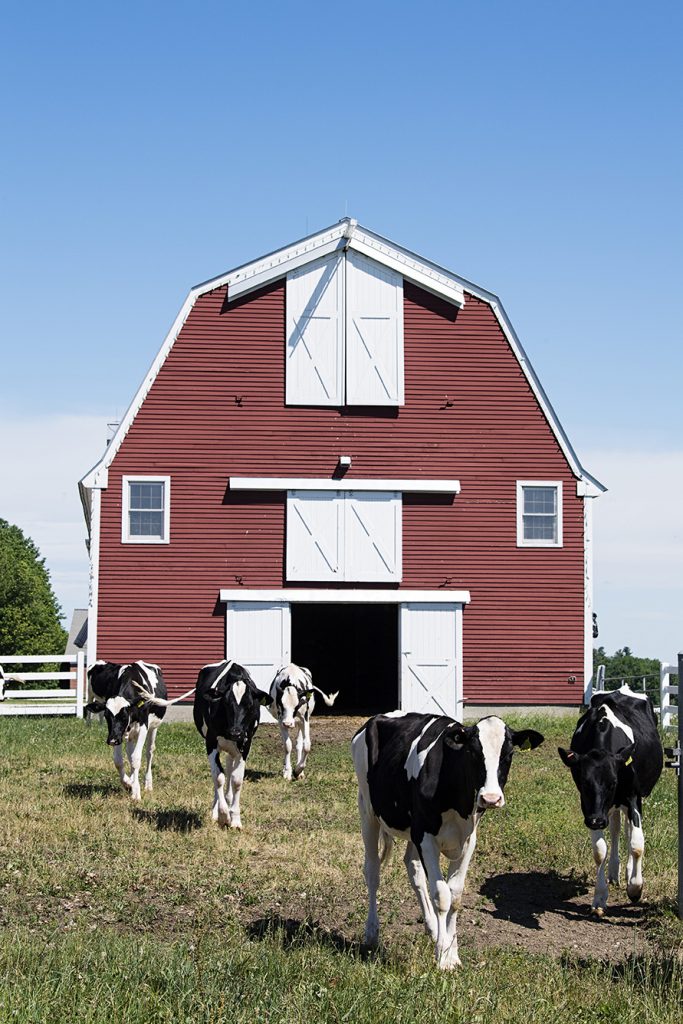
How a Charitable Foundation Transformed Pineland Farms, and Maine
Over the past two decades, the Libra Foundation has turned a campus with a notorious past into an agricultural and recreational marvel.
Photography by Nicole Wolf
By Anna Fiorentino
Issue: August 2021
Cows were grazing in the fields of Pineland Farms long before its cheeses lined refrigerator shelves in grocery stores across 48 states and its beef filled New England freezers. But for much of the twentieth century, many of the workers on the farm were not there by choice. Built in 1908 as the Maine School for the Feeble-Minded to house people with developmental disabilities, the institution was known, sadly, for its low points—abuse, imprisonment, and widely publicized escapes from a place that seemed impossible to leave, even for many who didn’t belong there in the first place. The Libra Foundation purchased the property in 2000, four years after the state closed the institution when it was Pineland Center. Since then the nonprofit’s charitable revitalization of the campus has made Pineland Farms one of Maine’s agricultural giants—and with it a town evolved.

It was my town. New Gloucester was home from the time I was four until I left for college, the year the Libra Foundation bought Pineland. Now I’m visiting Pineland Farms again, to understand how this vibrant campus could be the same eerie, vacant brick buildings, one of which, as a teen, my older sister had me convinced was haunted after what she saw through a basement window: a child-sized chair with restraints next to clinical tools. Despite no obvious signs of life, Pineland’s last residents, still living on campus at the time, remained until 1996.
Today birds chirp, tulips dance in the breeze, and sap drips through hoses in maples along Intervale Road. Visitors come to walk, run, and bike on professionally designed trails. Many have moved to my small town to work at the 224-acre rural office park that is home to the YMCA, state and national agencies, medical and technology companies, and schools, the latest addition being Unity College’s Technical Institute for Environmental Professions. But some things never change, I think, as I pass the iconic red barn of Hill Farm on Route 231. I park at the market and catch a glimpse of Mount Washington while walking to meet my old neighbor, Beverly Cadigan, president of the New Gloucester Historical Society, whose husband used to hay our field. “The facility here is so beautiful and positive now,” she says. “To me, it’s not to cover up what happened here, but to honor the people who worked on the farms for so long and the residents who suffered here. It’s really a gift to the town and to the state.”
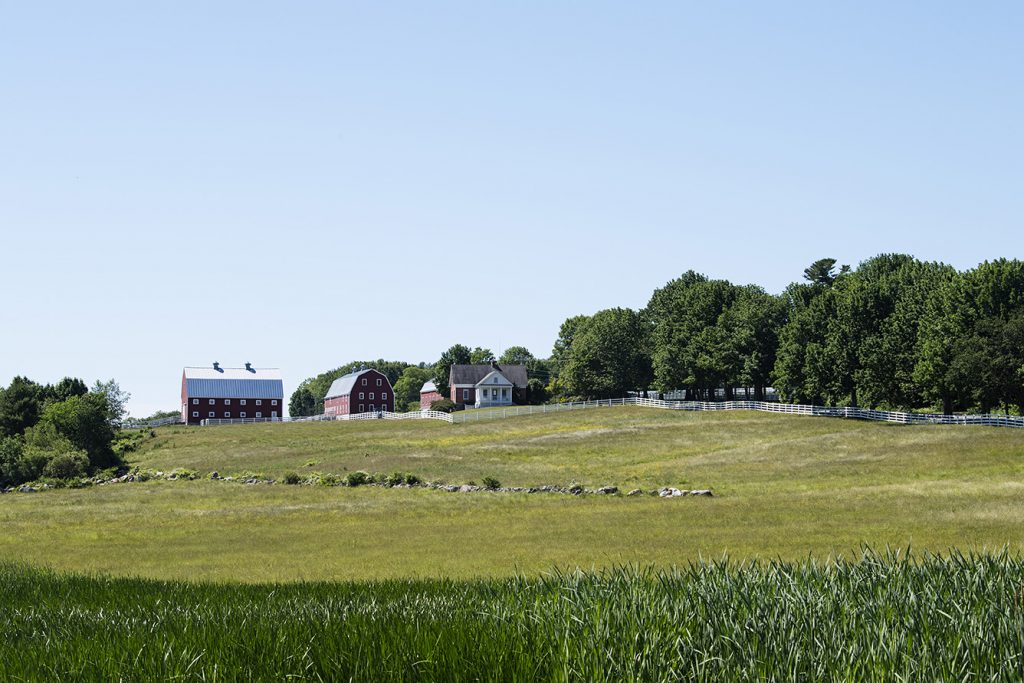
The story of Pineland Farms began with a woman named Betty Bottomley, who decades ago, while attending Tufts University, fell in love with a young MIT student, Robert Noyce. The two got married and moved out to Silicon Valley, where Robert invented the first monolithic integrated circuit and cofounded Fairchild Semiconductor (now ON Semiconductor) and Intel Corporation. But Betty Noyce’s happy ending came later, after they divorced in 1975. She’d lived for too long in her husband’s shadow, and after walking away with half their fortune, she returned to the place she loved most: midcoast Maine, where they’d summered. “She told me every time she left Maine with the kids to drive back to California, she’d cry until someplace in Ohio because she didn’t want to leave,” says Owen Wells. “She loved what Maine offered—a kind of stability and informality.” Word traveled quickly that Noyce was looking to invest her money in the state, and a call came in from Wells, then president of what would become the Portland Museum of Art. Noyce helped fund a new wing for the museum, and Wells became her lawyer and confidant. In 1989 the two formed the Libra Foundation to stimulate the state’s economy through philanthropy, a new concept at the time. Noyce formed Maine Bank and Trust Company in 1991 when Maine’s banks were failing. In Portland they created the now defunct Portland Public Market and rehabbed multiple apartment buildings. “It started to give other people encouragement to do stuff in downtown Portland, which was dying on the vine, and as a result of those additions, now we’re 20 years on, and it strikes me that Portland is thriving,” says Wells.
Noyce died of a heart attack at age 65 in 1996, leaving behind what was then Maine’s largest estate. That was also the year the last 31 residents moved out of Pineland Center. Three years later, in 1999 when I was leaving town, Wells visited Pineland for the first time. He’d caught a nightly news report about the abandoned campus, and underneath the degradation—leaky foundations, crumbling bricks, sagging barns, dirty broken toys, and piles of medical records—he remembers, “It was really quite beautiful.” Wells, by then Libra Foundation’s president, called up Governor Angus King and explained his intent to boost agriculture in Maine. Because no one else was willing to take on the significant liabilities of the old buildings, the two agreed to fair market value for the land plus the campus for a total of about $750,000.
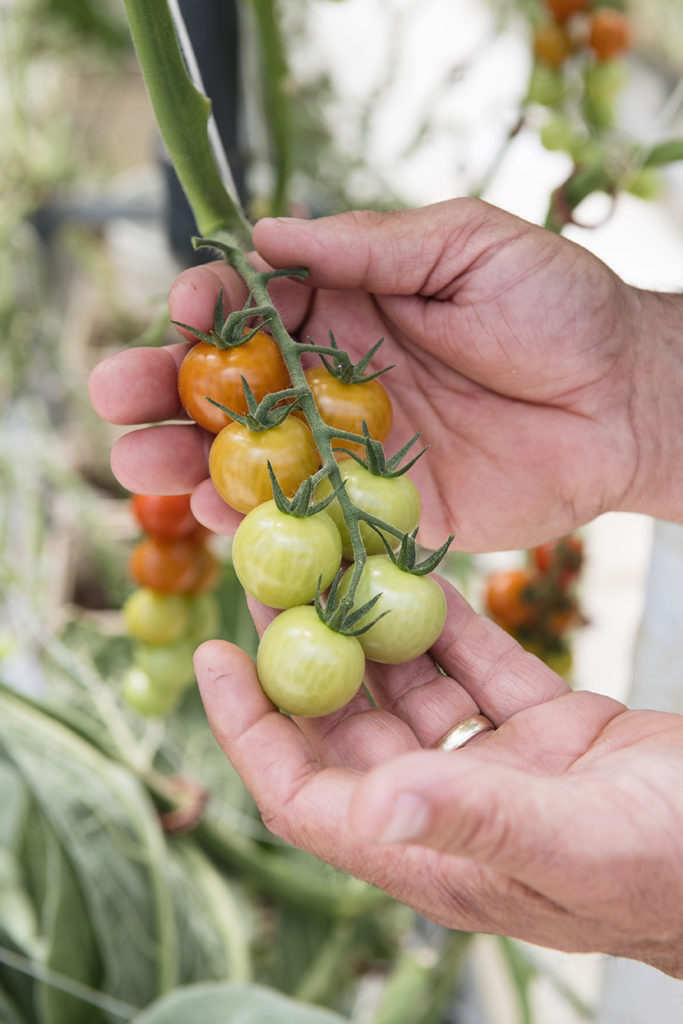
Pineland Farms supplies produce across southern Maine. 
Pineland’s award-winning cheeses pair with whatever’s in season.
“The skeptics couldn’t believe that anybody could do what the Libra Foundation said they would,” says Cadigan. She was part of a group in town that spoke at the State House in favor of the purchase. Wells saved the town from having Pineland split up and sold without any commercial plan. He refused the property tax break Libra was entitled to as a nonprofit, with the stipulation that the money go toward improving anything in town impacted by Pineland, and cleanup began. “At one point, we drained the pond, and I wondered what in the world we might find at the bottom,” says Wells. There was nothing but a few tires, but the deeper discovery of Pineland’s history had begun.
“I met a few elderly people who were what they called ‘inmates’ who’d come back to visit campus,” says Wells. “It was like a prison when they were there, and one gentleman told me about his attempt to escape. We thought about him all the time.” The Libra Foundation commissioned former New Gloucester resident Richard Kimball to write a book, Pineland’s Past, about the institution’s history. Kimball describes that many residents of Pineland, like the escapee Wells met, didn’t in fact have any developmental disabilities but were just poor, orphaned, or delinquents.
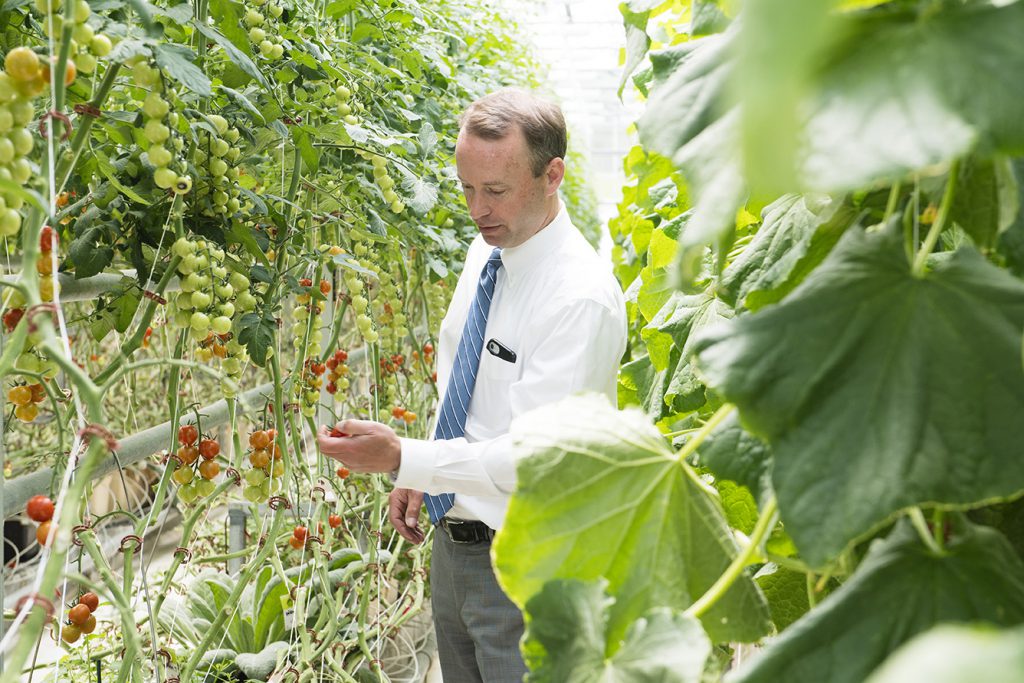
Cadigan suggests I reconnect with a man I never thought I’d talk to again after packing up my mom and saying goodbye to our 200-year-old farmhouse in the lower village in 2008. That year, Phil Blake had made the hardest time of our lives easier by promising to take extra care for my dad’s grave, which he’d dug two years earlier. “When I started working in the cemeteries, that’s when I discovered what happened on November 12, 1912,” Blake, who’s mother and grandfather worked at Pineland, tells me. On that date the state forcefully evicted the 45 residents of a mixed-race community from Malaga Island, near Phippsburg. Some of the residents were declared “feeble-minded” and committed to what is now the Pineland campus (although the majority of them were later deemed of normal intelligence). To discourage families from returning to Malaga, 17 bodies were exhumed from the island cemetery and reburied on the campus.
Abuses at the various iterations of what would eventually become the Pineland Center included 189 legalized sterilizations as the result of the country’s eugenics movement. Despite national recognition for the Pineland Center’s care for people with mental disabilities at one point, money dried up, and physical abuse and death from alleged negligence ensued inside the Behavioral Stabilization Unit, where Kimball’s book reported that controversial punishment involved “being strapped while under observation for an hour in a restraint chair in a dim cinderblock room with a padded floor”—just as my sister saw evidence of through the window. A class-action lawsuit over the conditions at the Pineland Center led to a 1978 settlement regarding the treatment of people with mental disabilities in the state, and the eventual closing of the institution.
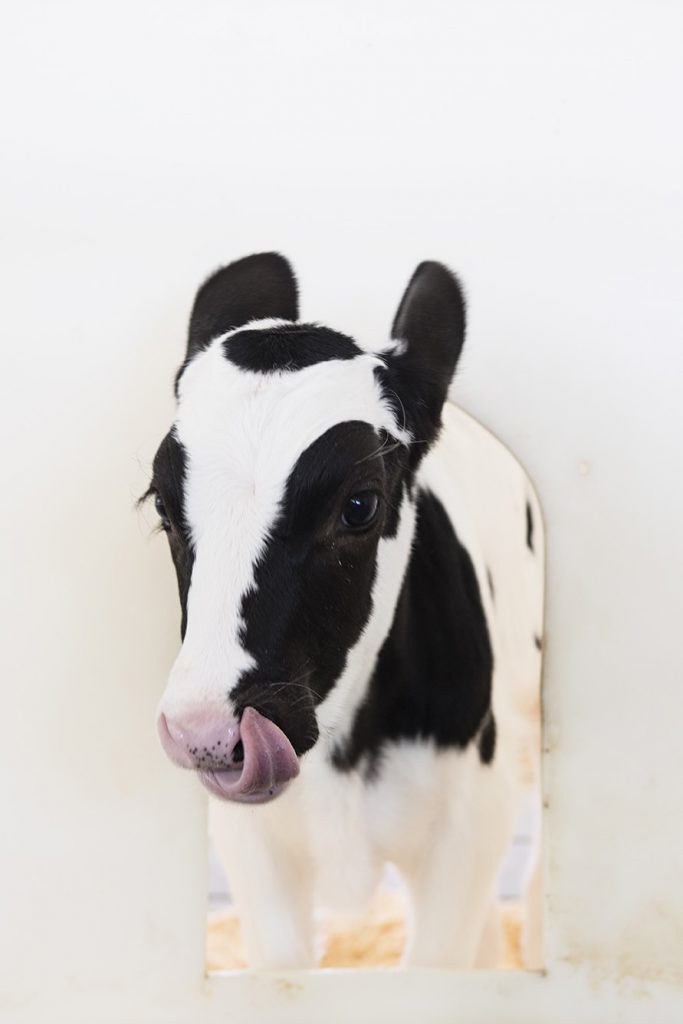
Cows still graze the property after milk production moved to Pineland Farms Dairy Company in Bangor. 
A peacock greets visitors at the Family Farmyard. 
A llama greets visitors at the Family Farmyard.
Pineland was just one of the country’s many state-owned rural institutions for people with developmental disabilities that sat neglected because they were cost prohibitive to redevelop. After the Libra Foundation saved Pineland, Wells was asked to fix up a number of similar campuses around New England, but New Gloucester was the only recipient of their revitalization.
The summer after college, I was shocked when my L.L.Bean coworkers raved about Pineland’s pro-level cross-country trails, until I skied them for myself. Today, under the direction of Libra Foundation executive vice president Erik Hayward, at Pineland Farms families visit farm animals and fish in the trout pond. The property has grown from 1,600 to 5,000 acres to include conservation forests and working farms (including a few in surrounding towns), showcasing agriculture as a public attraction and an educational model, just as Wells envisioned. The spot where I grew up strawberry picking is now Pineland Farm’s Produce Division at Gillespie Farms, which supplies grocery stores all over southern Maine. The organization’s impact on Maine dairy and potatoes extends well beyond New Gloucester. Pineland Farms Dairy Company opened a much-needed dairy processing plant in Bangor, near the bulk of Maine’s dairy production. The company now purchases over 10 million pounds of Maine milk a year and is Maine’s largest producer of cheese. Meanwhile, Pineland Farms Potato Company in Mars Hill, bought by Post Holdings in 2018, is a state economic driver and one of the most efficient processors of its kind in the nation. Revenue from the food products has helped the Pineland campus grow, as well as supporting other projects that benefit the state. In recent years the Libra Foundation has built Monson Arts, an artist residency that attracts people from all over the world, and funded the construction of the Piscataquis County Ice Arena in Dover-Foxcroft, supporting development in one of Maine’s poorest counties.
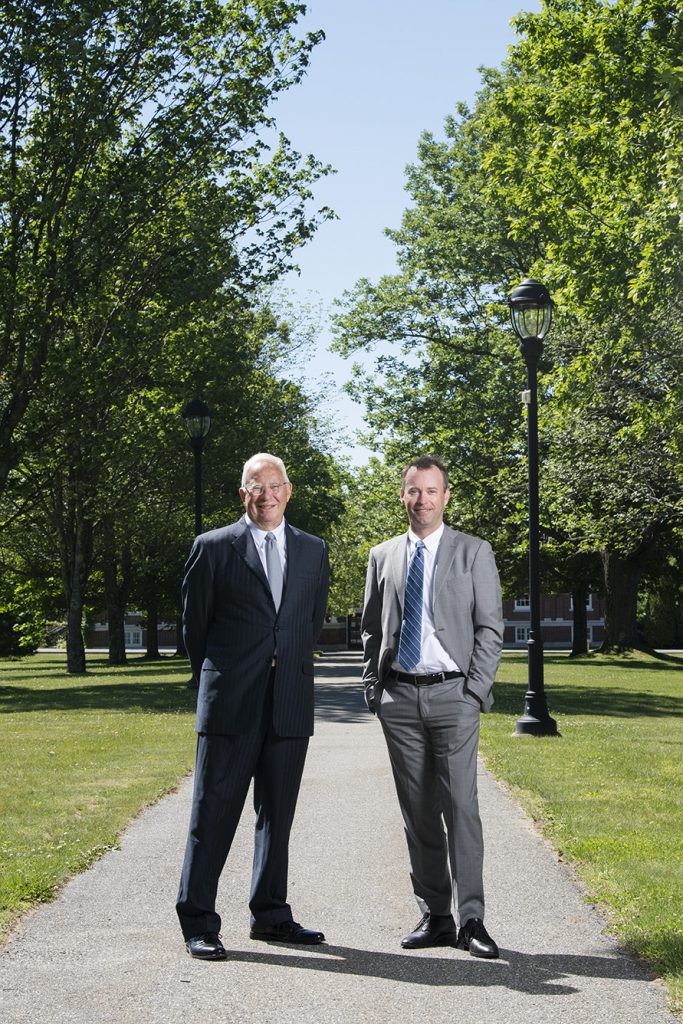
On the way to drive by my old house after visiting Pineland, I pull into the New Gloucester Village Store. The corner store where we used to buy Smarties for a dime and Airheads for a quarter now sells homemade gluten-free snacks and gourmet pizza. The town’s connection to the land and its residents’ appetite for farming is more evident to me now than it has ever been. Since the Libra Foundation came to town, the last remaining Shakers at Sabbathday Lake Shaker Village preserved 1,700 acres, the Chandler family protected another 2,000, and the Royal Conservation Trust and Maine Farmland Trust purchased an easement on the 427-acre Waterhouse Farm. With Pineland, that’s about a third of the town. There’s still not a single stoplight, but there’s a beautiful business district now and a lot more growers—of hops at Nu Brewery, and greens by Olivia’s Garden (a Pineland Farm’s tenant); there’s an alpaca farm and a flower farm. At my final stop, my dad’s gravestone, I think about how, for better or for worse, where you come from shapes you. Wells knew it that year the Libra Foundation decided not to shrink from Pineland’s troubled past, but to accept it as part of history when he purchased the property. That decision changed New Gloucester and the state of Maine as we knew it. “The Pineland campus as it exists today is a tribute to all those who were housed there by the state over nearly one hundred years,” Wells says. “The flowers that we plant there are a memorial to those that died there. Our farms remind us of the agricultural history of the state of Maine, as well as a reminder of what sustains all of us.”
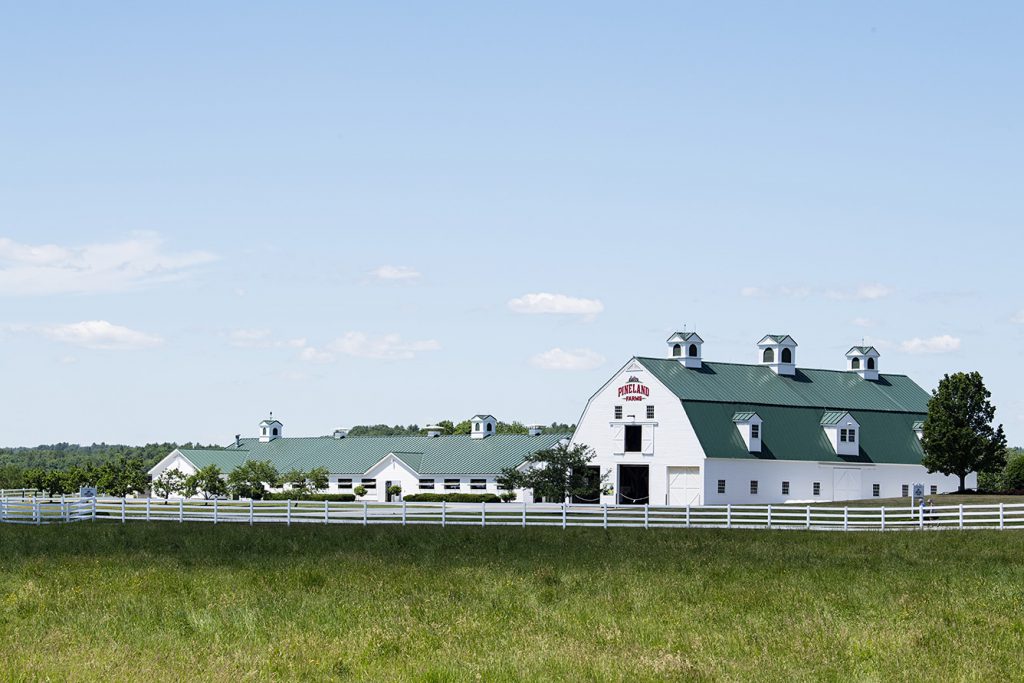
Read more business stories:
- Claiming Space at the Table

- How to Keep Your Houseplants Alive This Winter

- How to Winter in Maine

- 9 Creative Craft Coffees to Mix Up Your Morning

Learn about cheese making in Maine.

